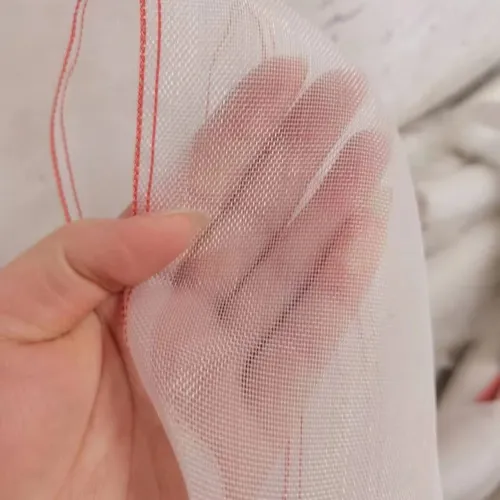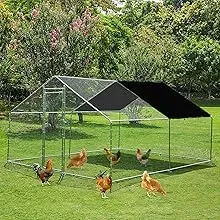-
 Afrikaans
Afrikaans -
 Albanian
Albanian -
 Amharic
Amharic -
 Arabic
Arabic -
 Armenian
Armenian -
 Azerbaijani
Azerbaijani -
 Basque
Basque -
 Belarusian
Belarusian -
 Bengali
Bengali -
 Bosnian
Bosnian -
 Bulgarian
Bulgarian -
 Catalan
Catalan -
 Cebuano
Cebuano -
 China
China -
 Corsican
Corsican -
 Croatian
Croatian -
 Czech
Czech -
 Danish
Danish -
 Dutch
Dutch -
 English
English -
 Esperanto
Esperanto -
 Estonian
Estonian -
 Finnish
Finnish -
 French
French -
 Frisian
Frisian -
 Galician
Galician -
 Georgian
Georgian -
 German
German -
 Greek
Greek -
 Gujarati
Gujarati -
 Haitian Creole
Haitian Creole -
 hausa
hausa -
 hawaiian
hawaiian -
 Hebrew
Hebrew -
 Hindi
Hindi -
 Miao
Miao -
 Hungarian
Hungarian -
 Icelandic
Icelandic -
 igbo
igbo -
 Indonesian
Indonesian -
 irish
irish -
 Italian
Italian -
 Japanese
Japanese -
 Javanese
Javanese -
 Kannada
Kannada -
 kazakh
kazakh -
 Khmer
Khmer -
 Rwandese
Rwandese -
 Korean
Korean -
 Kurdish
Kurdish -
 Kyrgyz
Kyrgyz -
 Lao
Lao -
 Latin
Latin -
 Latvian
Latvian -
 Lithuanian
Lithuanian -
 Luxembourgish
Luxembourgish -
 Macedonian
Macedonian -
 Malgashi
Malgashi -
 Malay
Malay -
 Malayalam
Malayalam -
 Maltese
Maltese -
 Maori
Maori -
 Marathi
Marathi -
 Mongolian
Mongolian -
 Myanmar
Myanmar -
 Nepali
Nepali -
 Norwegian
Norwegian -
 Norwegian
Norwegian -
 Occitan
Occitan -
 Pashto
Pashto -
 Persian
Persian -
 Polish
Polish -
 Portuguese
Portuguese -
 Punjabi
Punjabi -
 Romanian
Romanian -
 Russian
Russian -
 Samoan
Samoan -
 Scottish Gaelic
Scottish Gaelic -
 Serbian
Serbian -
 Sesotho
Sesotho -
 Shona
Shona -
 Sindhi
Sindhi -
 Sinhala
Sinhala -
 Slovak
Slovak -
 Slovenian
Slovenian -
 Somali
Somali -
 Spanish
Spanish -
 Sundanese
Sundanese -
 Swahili
Swahili -
 Swedish
Swedish -
 Tagalog
Tagalog -
 Tajik
Tajik -
 Tamil
Tamil -
 Tatar
Tatar -
 Telugu
Telugu -
 Thai
Thai -
 Turkish
Turkish -
 Turkmen
Turkmen -
 Ukrainian
Ukrainian -
 Urdu
Urdu -
 Uighur
Uighur -
 Uzbek
Uzbek -
 Vietnamese
Vietnamese -
 Welsh
Welsh -
 Bantu
Bantu -
 Yiddish
Yiddish -
 Yoruba
Yoruba -
 Zulu
Zulu
Feb . 13, 2025 11:35
Back to list
agricultural fencing net
Choosing the ideal agricultural fencing net is critical for any farming operation. The right features guarantee not only the durability and efficiency of the fencing but also the safety and productivity of your farming practices. Having managed a wide range of agricultural projects, I've gathered substantial insights and expertise about the essential characteristics needed in a quality agricultural fencing net.
Durability and maintenance are further considerations. A fencing net with a long lifespan mitigates the need for frequent replacements, thus offering better value over time. Look for nets that are not only strong and weather-resistant but also easy to clean and maintain. Nets that are compatible with standard cleaning equipment or require minimal care can significantly enhance operational efficiency. The versatility of an agricultural fencing net also determines its applicability in diverse farming environments. Nets that can adapt to different terrains—be it slopes, uneven grounds, or wetlands—are invaluable in agriculture. Versatile nets reduce the need for purchasing multiple types of nets for different areas, providing a more unified and cohesive fencing solution. Lastly, acquiring your agricultural fencing net from reputable suppliers adds an element of trustworthiness to the investment. Companies with a solid track record and accreditation in manufacturing agricultural products typically deliver goods that meet required safety and quality standards. Many of these suppliers provide warranties and customer support services, ensuring any issues post-purchase are promptly addressed, thus safeguarding your investment. In conclusion, selecting an agricultural fencing net involves a balance of durability, appropriateness for specific agricultural needs, and overall quality. Through understanding material attributes, installation processes, and supplier reliability, farmers can make informed decisions that enhance both the productivity and security of their operations. These considerations not only support the current agricultural needs but also help in maintaining sustainable farming practices for the future.


Durability and maintenance are further considerations. A fencing net with a long lifespan mitigates the need for frequent replacements, thus offering better value over time. Look for nets that are not only strong and weather-resistant but also easy to clean and maintain. Nets that are compatible with standard cleaning equipment or require minimal care can significantly enhance operational efficiency. The versatility of an agricultural fencing net also determines its applicability in diverse farming environments. Nets that can adapt to different terrains—be it slopes, uneven grounds, or wetlands—are invaluable in agriculture. Versatile nets reduce the need for purchasing multiple types of nets for different areas, providing a more unified and cohesive fencing solution. Lastly, acquiring your agricultural fencing net from reputable suppliers adds an element of trustworthiness to the investment. Companies with a solid track record and accreditation in manufacturing agricultural products typically deliver goods that meet required safety and quality standards. Many of these suppliers provide warranties and customer support services, ensuring any issues post-purchase are promptly addressed, thus safeguarding your investment. In conclusion, selecting an agricultural fencing net involves a balance of durability, appropriateness for specific agricultural needs, and overall quality. Through understanding material attributes, installation processes, and supplier reliability, farmers can make informed decisions that enhance both the productivity and security of their operations. These considerations not only support the current agricultural needs but also help in maintaining sustainable farming practices for the future.
Next:
Latest news
-
Shipping Plastic Bags for Every NeedNewsJul.24,2025
-
Safety Netting: Your Shield in ConstructionNewsJul.24,2025
-
Plastic Mesh Netting for Everyday UseNewsJul.24,2025
-
Nylon Netting for Every UseNewsJul.24,2025
-
Mesh Breeder Box for Fish TanksNewsJul.24,2025
-
Expanded Steel Mesh Offers Durable VersatilityNewsJul.24,2025











